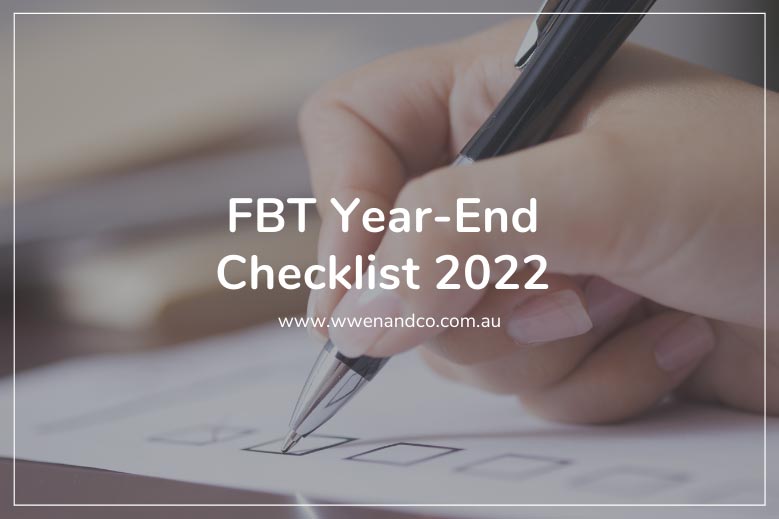General checklist to prepare the FBT return

March 31 marks the end of the 2021/2022 fringe benefits tax (FBT) year which commenced 1 April 2021. It’s time now for employers and their advisors to turn their attention to instances where non-cash benefits have been provided to employees, and also where private expenses have been paid on their behalf.
Although it will generally fall to your accountant to prepare the FBT return, it may not always be apparent to them from your software file or other records, all of the instances where you have provided employees and their associates (e.g. spouse) with a potential fringe benefit. To assist you in bringing these potential benefits to the attention of your accountant, following is a general checklist (non-exhaustive):
Cars
- Did you provide or make available a car that your business (or an associate of the business) owned or leased, to an employee or their associate for private purposes?
Exemptions include minor, infrequent and irregular non-work-related use by an employee of certain commercial vehicles.
- Did you as an employer reimburse expenses of an employee in relation to a car they owned or leased?
Exemptions include where the business compensates the employee on a cents per km basis for estimated travel and where the car has not been used for private purposes.
Loans
- Did your business provide a loan to an employee or their associate?
Exemptions include where the loan is strictly related to meeting an employment expense (which must be incurred within sixth months of the loan being made).
Exemptions also include loans made by private companies to employees who are also shareholders but the loan is Division 7A compliant.
Debt waiver
- Did your business release an employee or their associate from paying an outstanding debt?
An exemption applies where the debt in question is genuinely written off as a bad debt (as distinct from waived for employment or personal reasons)
Housing
- Did your business or an associated entity provide an employee or their associate with the right to use accommodation by lease or licence?
The benefit may be exempt in the event that it relates to a remote area.
Living away from home allowance (LAFHA)
- Did you pay an employee an allowance to compensate them for private non-deductible expenses because they are required to live away from their usual place of residence for work?
Strict exemption conditions can apply which your accountant can walk you through
Expense payments
- Did your business reimburse an employee or pay a third-party expense of theirs?
Exemptions include where the expense would have been otherwise deductible to the employee because it was work-related.
Car parking
- Did you pay for an employee’s car parking expenses or provide them with a car park during the year?
Various exemptions apply including where the benefit is for a disabled person, or provided by small businesses or certain non-profit employers, or the minor benefit exemption applies.
Entertainment
- Did your business provide an employee or associate (or in some cases third-parties with entertainment by way of food, drink or accommodation in connection with this?
- Did your business provide an employee or their associate with a corporate box, a boat or plane for the purpose of providing entertainment, or other premises for the purpose of providing entertainment?

